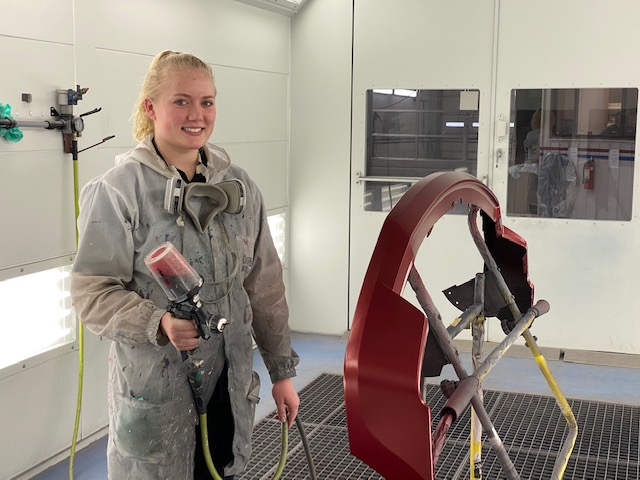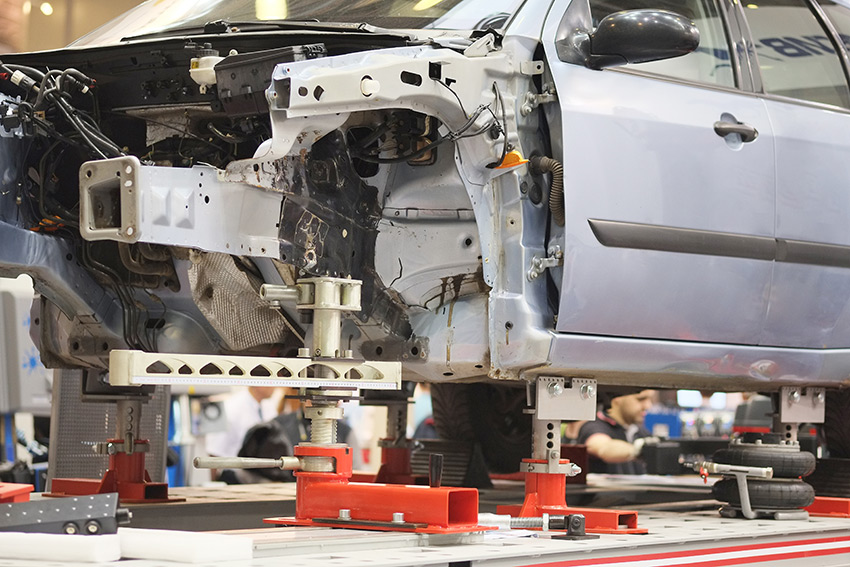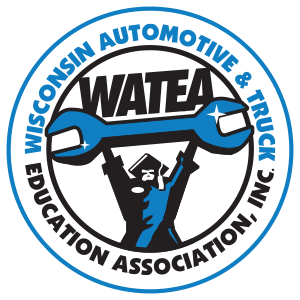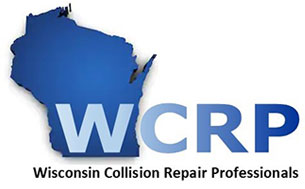Career Info
Career Awareness Presentation: Body Shop Career Awareness video - YouTube

What is a collision repair technician?
Collision repair technicians are knowledgeable in the field of auto body repair and possess the necessary skills to perform related repairs and custom refinishing according to the manufacturer's specifications.
Collision repair technicians fix damaged bodies and body parts of automotive vehicles such as cars, vans, trucks, buses, campers, and trailers. They may:
- Estimate the cost of a repair job
- Pound out small dents with a hammer, pick hammer, or punch
- Straighten bent or twisted frames/Weld metal parts
- Remove parts to gain access to vehicle body and fenders
- Remove, repair, or replace fenders, doors, or other body parts
- Fill damaged areas with solder or plastic body fillers
- File, grind, sand, and smooth filled or repaired surfaces
- Refinish with a primer coat, sand and paint with a finish coat
- Aim headlights and align wheels
Where are they employed?
Every reputable auto body repair shop, new car dealership and custom refinishing business employs skilled collision repair technicians.
What is the average salary?
Nationally, the majority of Collision Repair Technician salaries currently range between $39,500 (25th percentile) to $60,000 (75th percentile) with top earners (90th percentile) making $75,000 annually across the United States. The average pay range for a Collision Repair Technician varies greatly (by as much as $20,500), which suggests there may be many opportunities for advancement and increased pay based on skill level, location, and years of experience.
The average salary for Collision Repair Technicians in Wisconsin is $48,491. Keep in mind that wages vary greatly depending on the shops location, your experience, and demand in that location.
Many experienced technicians working for automobile dealers and independent repair shops receive a commission related to the labor cost charged to the customer. Under this system, which is commonly known as “flat rate” or “flag rate,” weekly earnings depend on the amount of work completed. Some repair shops pay technicians on an hourly basis instead. Most service technicians work full time, and many work evenings or weekends. Overtime is common.
What types of skills are required?
The ability to perform different types of sheet metal welding, metal finishing, and familiarity with paint preparation and refinish materials are a few of the main skills involved in auto body repair.
Who would enjoy it?
One should enjoy fixing and repairing objects, and not mind being indoors or in a garage all day. They should be able to look at flat drawings and visualize how they would look as solid objects, as well as be able to see details in objects or drawings. One should be able to perform a variety of duties which may change often, while working with a minimum amount of supervision. Someone in this field should also be able to rate information using standards that can be checked, recognize slight differences in shapes or shadings and work math problems well enough to figure cost-time estimates as well as work within precise limits or standards of accuracy.
 How many jobs are available?
How many jobs are available?
Employment of Auto Body Repairers is expected to increase about as fast as the average for all occupations through the year 2025. Employment of Auto Body Repairers and Painters is expected to grow about as fast as the average for all occupations through the year 2025 as a result of the rising number of motor vehicles damaged in traffic. Most workers in this field work in auto repair shops in or near metropolitan areas and large cities. Others worked in auto manufacturing, dealerships and government agencies.
Most people who become Auto Body Repairers can expect steady work since the auto repair business is not usually affected by changes in the economy.
How much schooling, training, or skill development?
Although one may obtain a job with no formal education, employers are beginning to prefer those applicants whom have some formal automotive repair training. Many high schools, vocational schools, trade schools and community colleges offer automotive repair training programs. Formal training in automotive body repair can enhance chances for employment and speed up one's chances for promotion.
Employers will also hire many people who do not have any formal automotive body repair training. They will learn the trade as helpers, by picking up skills on the job from experienced body repairers. For helper jobs, most employers prefer to hire high school graduates who know how to use hand-tools. Programs in Auto Body Repair provide opportunities to gain the knowledge and skills necessary for employment repairing damaged bodies and body parts of automotive vehicles such as cars, trucks, buses, and trailers. School subjects that include auto mechanics and industrials arts, electronics, troubleshooting and repairing mechanical problems, automotive engines and how they work should also be taken. Additional auto repair courses include major collision repair, paints and painting Technologies, metallurgy, auto body frame repair, metal finishing and welding.

Related occupations:
Automotive and Heavy Equipment Mechanics, Manufacturing, Computer Numerical Control, Transportation (Truck Driving training), Welding and Drafting & Design.






